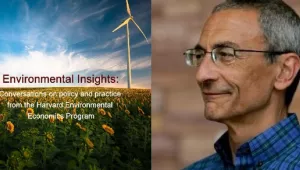BCSIA: 1977-1978 ANNUAL REPORT
1. Overview
This fifth annual report of the Program for Science and International Affairs (PSIA) covers the period from July 1, 1977, to June 30, 1978.
On July 1, 1978, the Program becomes the Center for Science and International Affairs— the first research center in the John Fitzgerald Kennedy School of Government. The creation of this permanent Center was made possible by a $4 million grant from the Ford Foundation. Supplemented by funds raised for the Harvard Program in Public Policy and Management, the grant will, by 1980, provide an endowment to ensure the continuation of the Center. The Center is to be housed in the Kennedy School of Government''s new building at 79 Boylston Street, officially opening its new offices in September 1978.
The new Center will continue the Program''s objective of advancing understanding and resolution of major problems of international security through research, publication, training, and teaching. The major focus is on arms control and disarmament and the part these can play in reducing the dependence on force in world politics. Most of the research is integrative in character and draws upon the natural, social, and behavioral sciences.
During 1977-78 the Program was administered by Professor Paul Doty, Director; Dr. Albert Carnesale, Associate Director; Dr. Michael Nacht, Assistant Director; and Dr. Dorothy Zinberg, Director of Seminars and Special Projects. Advice and direction were provided by an Advisory Committee of thirteen senior authorities in the field.
Twenty scholars and professionals were in residence full or part time, and eight graduate students were provided with guidance in writing theses, as well as with office space, administrative support, and other resources. They were housed in the Program''s main office, centrally located in the University at 9 Divinity Avenue, and in an adjacent annex at 7 Divinity Avenue.
Among the subjects dealt with in works published during the past year by members of the research staff were nuclear power and proliferation, the United Nations Special Session on Disarmament, the arms control impact of cruise missiles, and Indian and Chinese security policies. Articles on these subjects appeared in the Bulletin of the Atomic Scientists, International Security, Arms Control Today, Alternatives, Parameters, and The World Today, and in several edited volumes.
International Security, the quarterly journal published by the Program, completed its second year of publication in the Spring of 1978. Its goal is to provide timely and imaginative analyses through contributions that reflect diverse points of view and varied professional experiences. The articles either present new research findings or confront and interpret current policy problems.
Five working groups were conducted this year: Regional Security, Nuclear Nonproliferation, Future of Strategic Arms Control, Domestic Politics and Security Policy, and Theater Nuclear Weapons. The working groups provide a vehicle for collaborative work by members of the research staff with similar interests. The aim of each group is to produce either a book or one or more related journal articles.
Four series of seminars were held: the Harvard Arms Control Seminar, the PSIA Visitors Seminar, and the PSIA Research Seminar were continued from past years; and the Program co-sponsored (with the Russian Research Center and the Center for International Affairs) the Soviet Military Doctrine Seminar.
The Program also co-sponsored several workshops and conferences. As a member of the Aspen Arms Control Consortium, PSIA was centrally involved with a one-week summer workshop on "A Comprehensive U.S. Arms Control Strategy" and a three-day meeting in Berlin on "Implications of SALT for European Security." Jointly with the Massachusetts Institute of Technology the Program planned and conducted two conferences on nuclear energy policy-an American-German Meeting on Nuclear Energy Policy held at Airlie House and an American-Japanese Meeting on Nuclear Energy Policy (held in Tokyo). Held at the Program were two one-day workshops: a Conference on Economic Consequences of Arms Control Agreements (funded by the U.S. Arms Control and Disarmament Agency), and a Workshop on Institutional Aspects of Proliferation Resistance (co-sponsored with the Department of Energy and the Massachusetts Institute of Technology).
The course "Technology, Warand Peace" was taught for the third consecutive year by Professor Doty and Drs. Carnesale and Nacht; Program members participated as teaching fellows. The course was co-sponsored this year by the Harvard University Office of General Education and the Kennedy School of Government, and graduate student interest was such that a special section was formed for them. Over ninety students were enrolled in the course. Among the subjects covered were an examination of the historical development of nuclear weapons and of doctrine governing their use, the technology of nuclear weapons, nonproliferation and strategic arms control, and new dimensions in national security.
Table of Contents:
OverviewOrganization and Personnel
Research and PublicationsSeminars Other Program Activities Related Professional Activities Former Members of the Research Staff
The full text of this publication is available in the link below.



